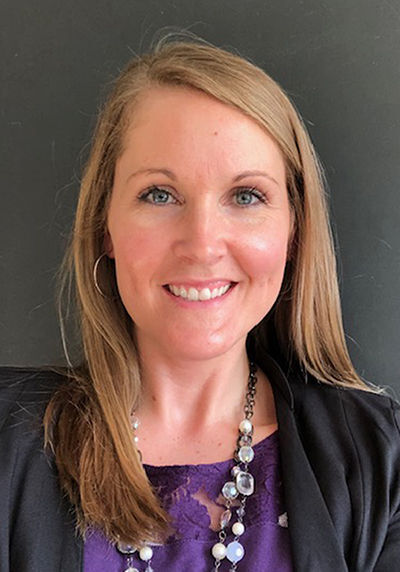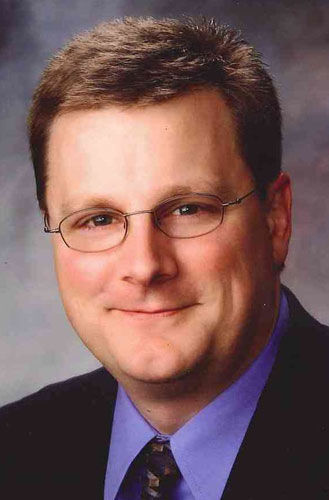For many basketball fans, wagering a few bucks on March Madness may be an annual tradition.
Friends and coworkers have long come together to forecast the winners of the NCAA Men’s Basketball Tournament, often putting down a few dollars with the understanding that the best prognosticator would take home the winnings.
With the legalization of sports gambling, however, local residents now have plenty of new ways to wager on the tournament. And those who specialize in gambling treatment believe that may not always be a good thing.
“People might be used to filling out brackets, but now there are just so many other ways to bet,” said Mary Boots, prevention supervisor at Substance Abuse Services Center in Dubuque. “You can be in a (physical) sportsbook or on your phone. You can bet during your lunch break, or at work, or when you get home. With all that accessibility comes more problem gambling.”
Sports gambling has been legal in Iowa since August 2019, and Illinois followed suit in 2020. Sports betting remains illegal in Wisconsin.
Last year’s NCAA Men’s Basketball Tournament was canceled due to the COVID-19 pandemic. That means this year will mark the first time many local residents can legally wager on the tournament, which began this week.
March Madness comes at a time when sports gambling is rapidly expanding.
“February was the largest month yet for sports wagering (in Iowa),” said Eric Preuss, problem gambling services manager for Iowa Department of Public Health. “I expect that, when the data comes out, March will be even higher.”
Raising awareness
The NCAA tournament coincides with Problem Gambling Awareness Month, a time when those promoting addiction treatment and public health shine a spotlight on the adverse impacts gambling can have.
Boots said her organization, as well as IDPH, works year-round to raise awareness through social media outreach, community presentations, educational programs targeted at local businesses and training for casino employees.
Recently, the onslaught of advertising by sportsbooks has underscored a recurring problem for organizations such as SASC: As hard as they may try to spread their message, it is at risk of being drowned out by organizations with bigger budgets and a wider reach.
“The sportsbooks have a lot more resources at their fingertips to get their initiatives out there and advertised,” Boots said. “It is often an uphill battle.”
While many struggle with gambling problems, most people do not.
Preuss said 86.4% of adult Iowans show no signs of problem gambling. The other 13.6% — about 315,000 — are considered at-risk gamblers, which means their gambling has some negative impacts on their lives and they exhibit at least some behaviors associated with problem gambling.
Just under 1% of adult Iowans — 18,500 individuals — are considered problem gamblers.
“It’s a small percentage,” Boots said. “But for these individuals, it can turn their lives upside-down.”
In October, IDPH began tracking phone calls it received pertaining to gambling problems. Traditionally, such calls have been related to the lottery, slot machines or casino games.
When IDPH began its analysis, about 1% of problem gamblers seeking help reported issues related to sports gambling. Today that figure has ballooned to roughly 25%.
This has coincided with new rules in Iowa that allow residents to open a gambling account online without having to visit a physical sportsbook.
Preuss said he cannot say with certainty that this change has increased sports gambling problems. However, he said the changing rules have introduced new sportsbooks into the state and upped the ante on advertising from those markets.
“There has been a high level of investment to compete for Iowans interested in wagering on sports,” he said.
Busy times
Kevin Hennessy, a spokesman for FanDuel Sportsbook, which operates a facility in Dubuque’s Diamond Jo Casino, said March Madness is among the top two sports-betting events of the year, along with the Super Bowl.
Casinos in town are eager to meet that demand.
“For years, fans have been filling out brackets, they’ve been thinking about who wins or loses these games,” Hennessy said. “That ties perfectly into sports betting.”
Brian Rakestraw, General Manager of Q Casino in Dubuque, said the facility’s sportsbook and the accompanying bar will be open for extended hours on tournament days.
“We’re glad that the tournament will be back this year, and we’re looking for a nice crowd,” he said.
Both casinos attempt to address problem gambling by displaying educational materials and providing resources for those who may struggle with such issues.
Hennessy said FanDuel Sportsbook allows customers to place limits on how much they can wager and deposit into their online accounts. He said the sportsbook also has donated some of its “media spend” to the American Gaming Association, allowing the organization to use commercial spots to promote problem gambling awareness.



